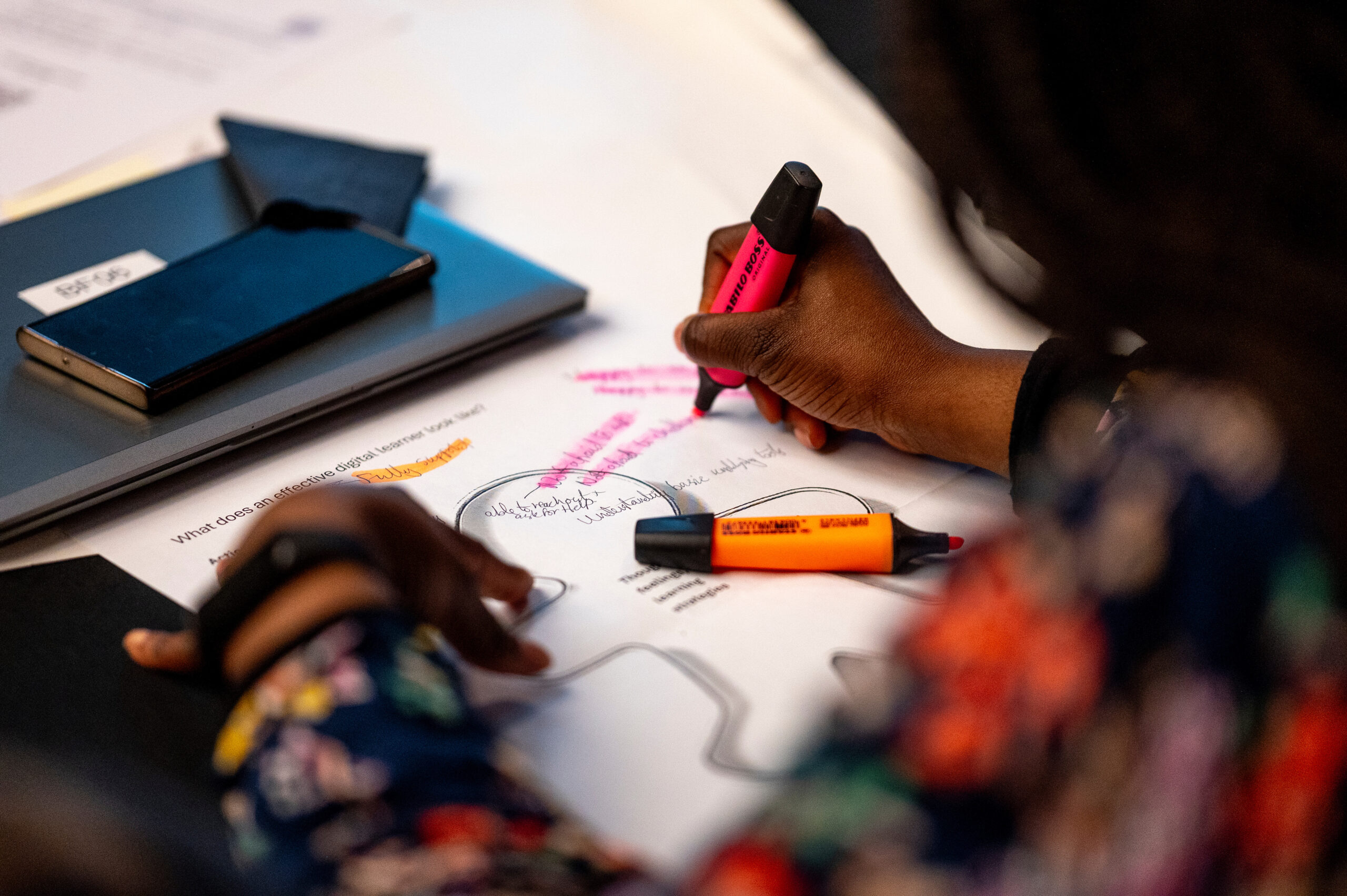We were delighted to attend the second day of the Research In Distance Education (RIDE) 2025 conference last month. On our first visit back in 2023 (see the recording of our 2023 presentation here) we found it to be a warm, inspiring and thought-provoking space to explore some of the emerging and persistent challenges and opportunities for digital and online learning. We just received word that the recordings of the 2025 conference are now available, so we thought we’d share a few of our thoughts along with links to the relevant presentations.
This time we gave a workshop on digital confidence at the end of the day (well done to everyone who kept up their energy levels through to 5pm!), and were inspired to hear from so many folks who attended, sharing their complex and nuanced thoughts on its role in their contexts, and how it might connect for them with effective digital learning.
We’ve been reading some other takeaways where other attendees have been sharing their thoughts on LinkedIn, and thinking about what we might take back with us to inform our own practice. Perhaps one theme we’d draw out would be around alternative types of assessments, and the hope and trouble involved with implementing them. This resonates for us, with new digital assessments being a focus for our team over the last few years.
Chris Wood (University of Portsmouth) shared a pilot study that aimed to improve inclusivity in digital assessment by offering students more choice in what form their assessments took, including media such as podcasts and video. He shared insights about the kind of support and guidance that colleagues and students find useful, which goes beyond instructions to also explore some of the contributions the assessment type can make to their knowledge and employability.
RIDE 2025 – Inclusive Education through Alternative Summative assessments (YouTube video)
Colette Gordon (University of the Witwatersrand, Johannesburg, South Africa) shared collaborative annotation as an alternative to essay writing that provided a new entry point for students into traditionally studied literary texts. As lifelong marginalia fans, the collaborative approach was a great hook for us, and it was easy to see how this could encourage sharing of thoughts and critical interpretations of texts developed alongside and together with the ideas of peers.
RIDE 2025 – Social Reading, Social Justice? (YouTube video)
It was also so helpful to hear from Colette and others across the conference about aspects of the approach they were discussing that didn’t work as well, the times when circumstances changed that affected success, and their reflections on the factors they thought might have affected the outcomes. We think including that critical evaluation is extremely valuable, offering us a much deeper insight into the innovative approaches being presented.
Thank you to everyone who shared their ideas with us on the day, through presentations, informal discussion, and workshop participation.
University of London, Centre for Online and Distance Education present Research in Distance Education Conference RIDE 2025 Empowering and Sustaining Change at Senate House, University of London, Friday, March 14, 2025. Picture by Dan Law / danlawphotography.com
